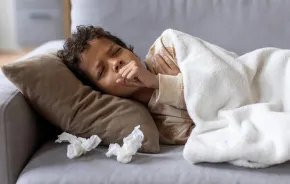
Fires in Alaska rage. A hurricane just touched down in Louisiana. This week, earthquakes shook the state in California and last night an earthquake near Snohomish rocked the Seattle-area.
Natural disasters can bring immediate destruction anytime, anywhere. The suffering of people from each of these natural disasters is a sad reminder that we can’t always rely on our government or even our communities to provide timely aid should a disaster hit.
The odds of you and your family experiencing a natural disaster in your lifetime are high. In fact, analysts say Seattle is headed for an epic-sized whopper of an earthquake that could be catastrophic. But in the face of what seems like an overwhelmingly bleak potential outcome for Seattle’s safety, don’t panic — prepare.
Here are the five things you can do to prepare your family for a natural disaster or other emergencies.
Stock your home with emergency supplies. According to Seattle’s Emergency Management Department, every home should have enough emergency supplies on hand to last at least 7-10 days in the event of a natural disaster or other emergencies. To get you started, there are pre-made emergency disaster kits available at Costco and on Amazon. But buying pre-packaged emergency supplies can get costly; plus they’re not customizable. So if you’re looking to save money and have more control over what’s stocked in your emergency stores, try setting aside a monthly budget for adding at least one emergency item to your list and stick to it. In no time, you'll have a reasonable stockpile.
Make sure your neighborhood schools are prepared. Most districts around the sound don't provide emergency supplies. In fact, at most schools in Seattle and beyond, it’s up to the PTA to keep emergency supplies current and well stocked. Check in with your child’s school and any neighboring schools you suspect might be in need and find out what you can do to help them stay up-to-date on emergency supplies and other response efforts.
Have a family plan. If your family is like mine, each family member has school, work and various other activities that keep us separated from each other for much of the day. So the likelihood that you and your entire family will all be in the same place at the same time when a disaster hits is slim. That means it’s important to have a plan. Take the time to sit your kids down and discuss where you’ll meet should you be separated. Let them know who else they can turn to if for any reason you are indisposed. Find out where the closest likely shelter or safe spaces are in your neighborhood. Talk to them about basic street smarts and safety skills while away from home. And make sure they are able to operate with a reasonable level of independence for their age should they have to.
Teach your kids safety information and skills. Work with younger kids to memorize your address, your phone number and the numbers of a few other emergency contacts. Make sure every member of your household knows where to find a phone and how to dial 911. Talk with them about walkable routes to and from school. Review earthquake, flood and fire-drill information with them. Sign kids of all ages up for swim lessons. Consider signing up older kids for a wilderness-awareness class or babysitting certification where they’ll learn survival skills and/or first aid in a non-anxiety inducing environment. Learning wilderness awareness skills as well as basic first aid could be life-saving in a natural disaster.
Protect your home. If you have sentimental or vital documents you don’t want to lose in a disaster, consider creating electronic duplicates or fail-safe storage options for those items NOW. If you rent, talk with your landlord about considering earthquake retrofitting. If you own, consider renovations that have disaster-proof features as much as possible. Research options for updating your house to meet the highest safety standards and find out what tax deductions or other benefits may be available to you in the process. Review your budget and see if there is a way to add earthquake, fire and flood insurance to your renter’s or homeowner’s insurance.
Though it doesn’t do any good to live in constant fear that the next disaster is around the corner, it’s always a good idea to review your options for improving your emergency preparedness as a family. If you can take one small step today (and everyday from here on out) to make sure you’re doing everything you can to stay safe if — or more likely when — disaster strikes, you'll be glad you did.











